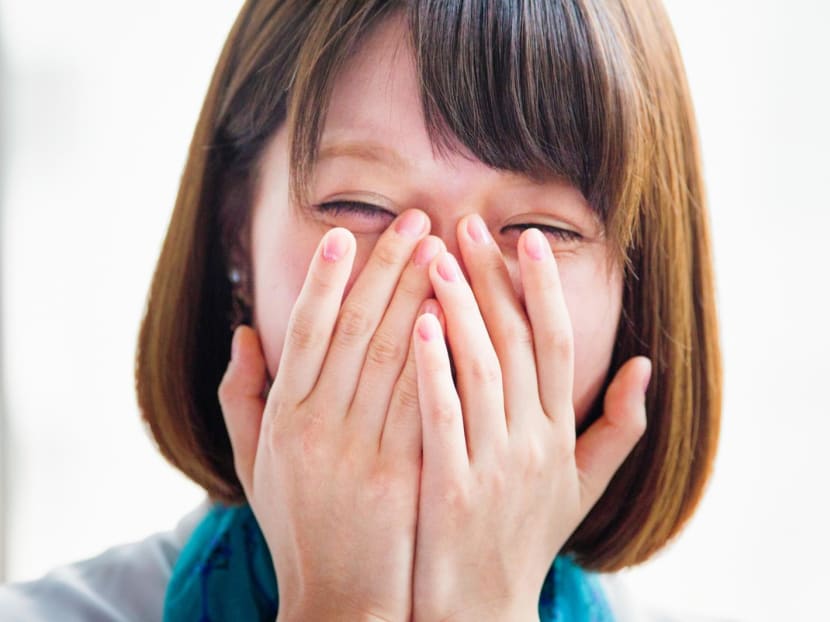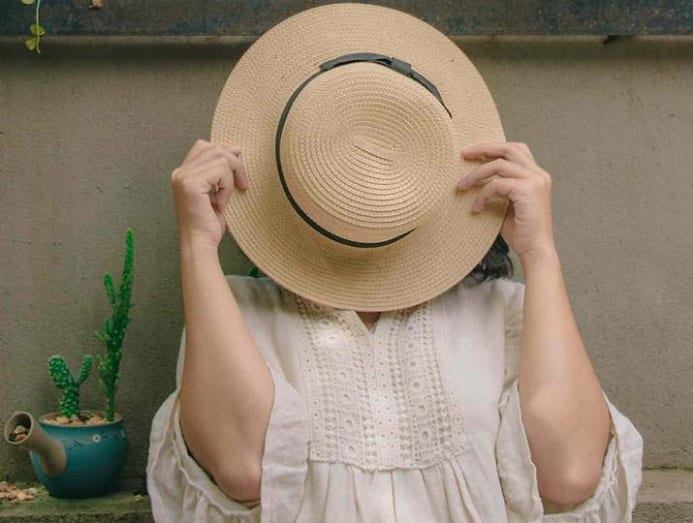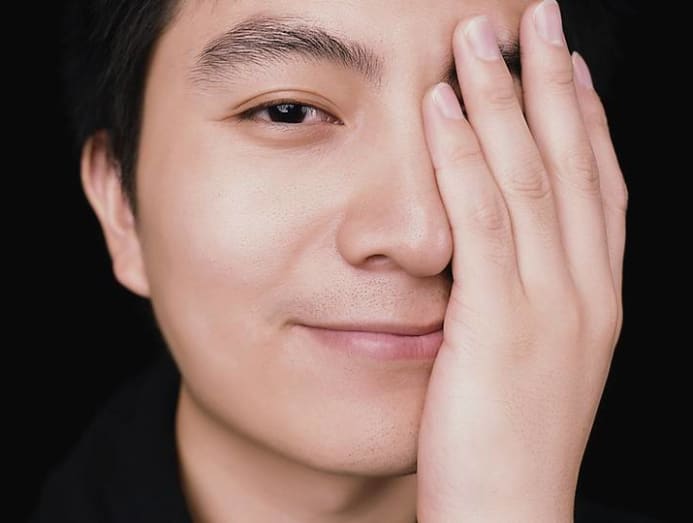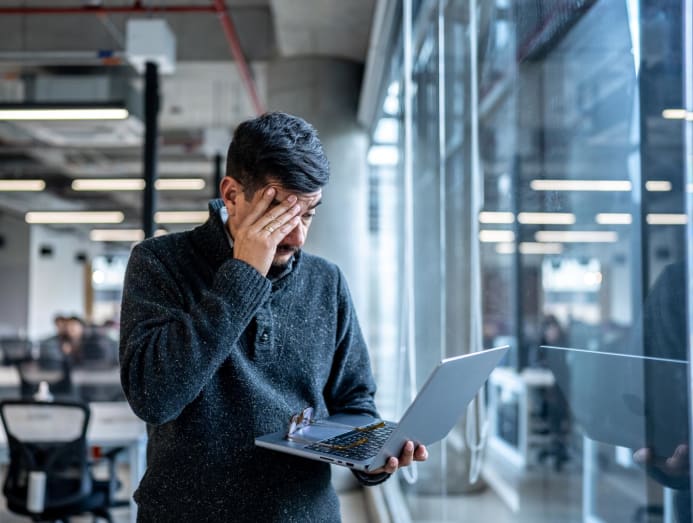Saving face: Why do some people blush easily and is there a way to minimise it?
Knowing that you're red in the face can sometimes make you blush harder. But is there a purpose to blushing and can you hide the redness?

(Photo: iStock/Nicolas McComber)
I turn as red as an ang ku kueh in the face easily. Public speaking is a major trigger for sure, though sometimes, being singled out in a meeting or social setting can have that effect as well.
At times, I don’t even have to speak. MRT gantry doesn’t open when I tap my EZ-Link card and there’s a long queue of people behind me? Realising I have kale in my teeth at the end of the day and no one told me? Royal flush.
My entire face and neck redden as if someone had suddenly spilled chilli powder on me. I can hear my heartbeat in my ears, followed by an escalating prickly, warm sensation, which usually alerts me to the “oh no, here we go again” situation on my face.
What purpose could blushing possibly have? Other than stopping me from taking up poker, I’m also way, way past the age when blushing was my only chance of getting my crush’s attention. Evolutionary-wise, the ability to redden to me is as redundant as hair on my chin.

THERE’S A REASON WHY WE BLUSH
As it turns out, there is a purpose to blushing. “When exercising, for example, we will require vasodilation (widening of the blood vessels) and an increase in oxygenation to our brain,” said Dr Lim Boon Leng, a psychiatrist from Gleneagles Hospital. This widening of your blood vessels is what enables your body to lose heat – and also makes you redden.
“It is our own perception and error in thinking that somehow blushing is bad and embarrassing that is the problem,” he said.
“Asians tend to value not showing emotions – particularly in public – as a good attribute. As such, blushing is seen as a reaction to being embarrassed or being anxious, and such displays of emotions are wrongly attributed to be weak, and therefore, face losing.”
Dr Mary Lamia, a professor at the Wright Institute in Berkeley, California, has another theory: Blushing helps you to save face. “Blushing can be to your advantage because it is a distinct signal of sincere regret; it signals to others that you acknowledge your shame, mishap or social wrongdoing, and in doing so, it promotes trust and positive judgments by observers,” she wrote in Psychology Today.
“In other words, if you show embarrassment by blushing at your transgressions, then you are more prone to be liked, forgiven and trusted than those who do not. As a result, your blush may help you save face.”

WHAT’S CAUSING THE BLUSHING?
Whether it’s a glass of wine, exercise, heat or you’ve just realised you’ve stained your colleague’s seat, your body reacts the same way to redden your face.
“The pathogenesis of blushing from embarrassment and from other triggers like anger, after exercise and drinking alcohol are similar,” explained dermatologist Dr Eileen Tan from Eileen Tan Skin Clinic & Associates at Mount Elizabeth Novena Hospital.
“They are due to increased sympathetic nervous system activity, leading to vasodilation and clinically presenting as blushing with redness and increased warmth.”
But why is the reddening occurring in just the face and neck but not the body? “The face has more capillaries per unit area than other parts of the body. Blood vessels in the cheeks are also closer to the surface and this makes the face subject to rapid changes of blood vessels response,” said Dr Tan.

A GEL TO STOP THE BLUSHING?
Knowing that I look like a big, fat location marker on Google map in front of people often makes me blush even harder. So, thank goodness for masks, Zoom filters and WFH because people don’t really need to see my face changing colour like a one-tone mood ring.
But the ultimate anti-blush solution I have encountered so far is a prescription topical gel known as Mirvaso. “It has brimonidine, which reduces redness by constricting blood vessels,” said Dr Tan.
“You may see reduced redness within 12 hours after use. However, the effect is temporary and it has to be applied regularly to maintain improvement.”
I have yet to try it but brimonidine was originally used in eye drops to treat glaucoma. It was discovered by accident that it could also lessen redness in the areas around the eyes, making it beneficial for those who suffer from rosacea, too.
Perhaps the key is acceptance, as Dr Lim said. “It is most useful to accept that we blush and not be secondarily embarrassed or upset about it. Often, if we are okay with the way we are, and we do not mind this simple, necessary biological reaction, we may ironically blush less or not at all!”
Or, as Dr Tan suggested, I can always just use makeup.






